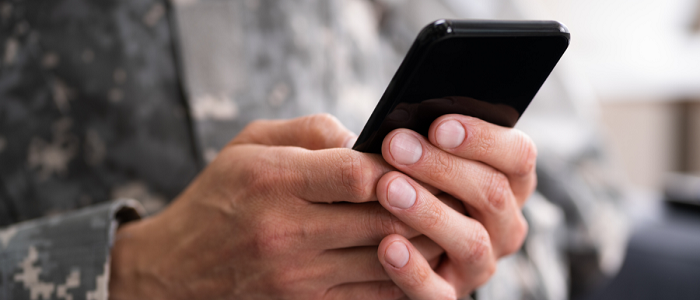University of Glasgow Receives ERC Grant to Enhance Understanding of Digital Participation in War
A University of Glasgow academic has been awarded a prestigious European Research Council (ERC) Advanced Research Grant for research that will enhance society’s understanding of digital participation in war.
Professor Andrew Hoskins, of the School of Social and Political Science, received £2.27 million euros for ‘WARSHARE – The New War Front: Digital Participation in War’.
The five-year project will produce new interdisciplinary understanding of how and why digital participation is transforming the ways in which individuals and societies (including militaries and states) fight, experience, and understand warfare.
It will illuminate how smart devices, apps and platforms enable a wide range of actors – militaries, states, journalists, NGOs, private companies, soldiers, citizens and victims – to participate in warfare in an immediate and ongoing fashion.
WARSHARE involves collaborations with the University of Sussex in experimenting with the revolution in machine-learning and AI methods which enable not just the mining and measuring of online behaviour, but also the interrogation of multiple modes of communication that shape participation and meaning in warfare.
Professor Andrew Hoskins said: “War in the twenty-first century is participative. People can record and document war, and unwittingly and deliberately transmit data points that can generate targets on the battlefield. Smart devices are both a way to represent war and a node in its practice.
“My project will show how the frenzy of digital participation transforms how war is fought, experienced, remembered and forgotten. I ask: what does it mean to participate in the digital stream of horror of war in plain sight?
“Warfare is distributed and experienced across digital battlefields. Social media platforms, messaging services and apps, enable allcomers – soldiers, civilians, journalists, victims, aid workers, private companies, journalists, and states – to participate in twenty-first century conflict. It could be said the social media clouds of war have replaced the fog of war.”
WARSHARE will primarily focus on the hybrid messaging, communication and network platform Telegram, which is both the wounding and the witnessing app of choice for combatants and for civilians in Ukraine, Gaza and Israel.
Professor Hoskins said: “My work exposes the void between a debate over the responsibility and control of companies over their media platforms and the free-for-all that is Telegram.
“Telegram is the greatest living archive of war ever created – and the perfect weapon for all actors engaged in psychological warfare. What difference will the most documented war in history make to perception, knowledge, and memory, about warfare, and ultimately justice and accountability?
“Communication is not only about likes and automated shares. On Telegram you can sponsor a Russian sniper rifle, having your own message stencilled on to a gun that will shoot Ukrainians, or inscribed on a 152mm rocket shell. In return, images and videos depict the damage caused by your personalised weapon, as well as a message of thanks for the donation from the sniper who fired it.
“Ultimately, this is not only about algorithmic power, it is participant power.”
The ERC Advanced Grants funding is amongst the EU’s most prestigious and competitive, providing leading senior researchers with the opportunity to pursue ambitious, curiosity-driven projects that could lead to major scientific breakthroughs.

